Spiders can be a nuisance, and if you’re looking for an eco-friendly way to keep them away from your home or garden, planting certain kinds of plants could be the solution. It’s well known that certain plants have natural properties that repel spiders – but which ones should you choose? This blog post will explore some of the best plants that deter spiders so that you can find a natural pest control solution for your spider problem.
What spiders can attack your garden?
Several types of spiders can attack your garden. These include common house spiders, brown recluse spiders, wolf spiders, black widows, and yellow sac spiders. All of these species tend to bite humans if threatened or disturbed, so it is important to be aware of their presence when working in the garden. House spiders generally build webs near windows, doorways, and patios in search of prey such as flies or other small insects.
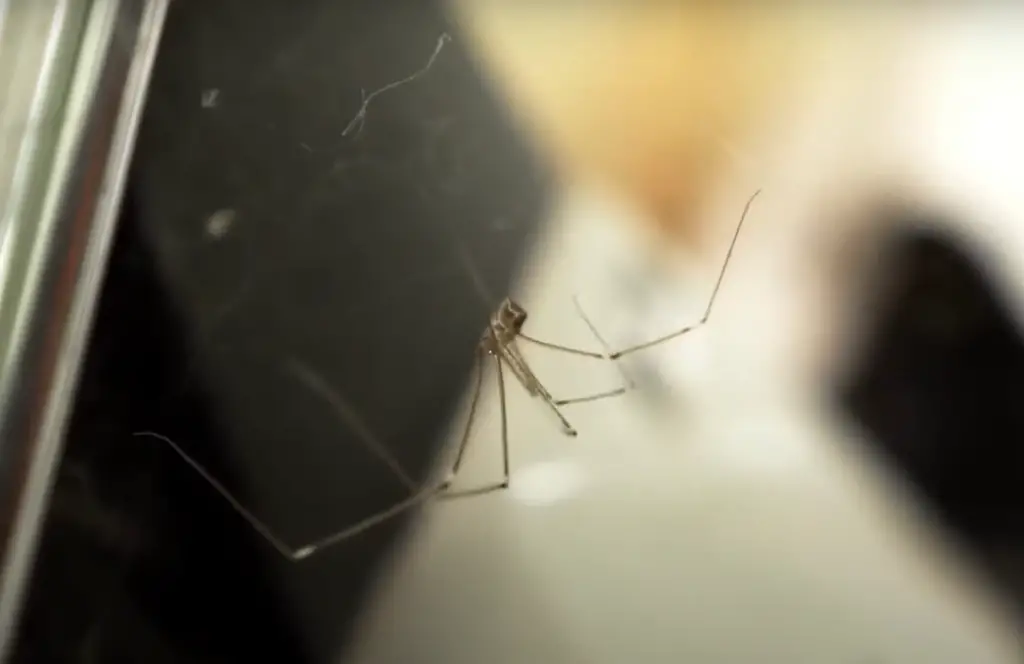
Brown recluse spiders prefer dark and damp places like wood piles and basements but may also venture into gardens where they feed on insects. Wolf spiders are large hairy arachnids that often wander around yards during the day looking for food sources such as insects or small animals. Black widows are a common species of spider found in gardens and other outdoor areas. Their venom is very powerful, so caution should be taken when they are encountered.
Finally, yellow sac spiders are often mistaken for black widows due to their similar coloring but they are much less dangerous than their counterparts. These spiders build silken tubes or sacs to rest in during the day and come out at night to hunt for food sources like small insects. All of these spiders can be hazardous to humans, so it is important to take proper safety precautions when dealing with them [1].
Are spiders dangerous for your garden?
The simple answer is no, most spiders are not dangerous to your garden. Most spiders are beneficial because they feed on insects that can damage plants and crops. Many species of spiders will kill and consume harmful pests like aphids, caterpillars, moths, beetles, and more. By controlling the insect population in your garden, spiders help keep your plants healthy and thriving.
While some spiders can bite, it is usually only when they feel threatened or are disturbed directly. Most spider bites are harmless and do not cause any significant health risks in humans. Generally speaking, if you leave spiders alone, there is no reason to worry about them being a danger in your garden.
It is important to note that some species of spiders can be dangerous to humans, such as the black widow and brown recluse spiders. If you have encountered either of these species in your garden, contact a professional pest control company for assistance with removal. It’s also a good idea to wear gloves and take precautions when removing webs from your garden as many types of spiders may still be present.
Overall, spiders can be beneficial in your garden because they help control insect populations that can cause damage to plants and crops. As long as you take precautions around potentially dangerous species, spiders should not be a major threat to your garden’s health [2].
Fragrant houseplants that are proven to repel spiders naturally
Basil
Basil is a beautiful and fragrant herb that has multiple uses in cooking, but it also has insect-repelling properties. The same oils found in the leaves of basil are also used to make natural spider sprays. Place potted or fresh plants around your home, especially near windows and doors, to keep spiders away.
Peppermint
The strong scent of peppermint can be an effective deterrent against spiders.
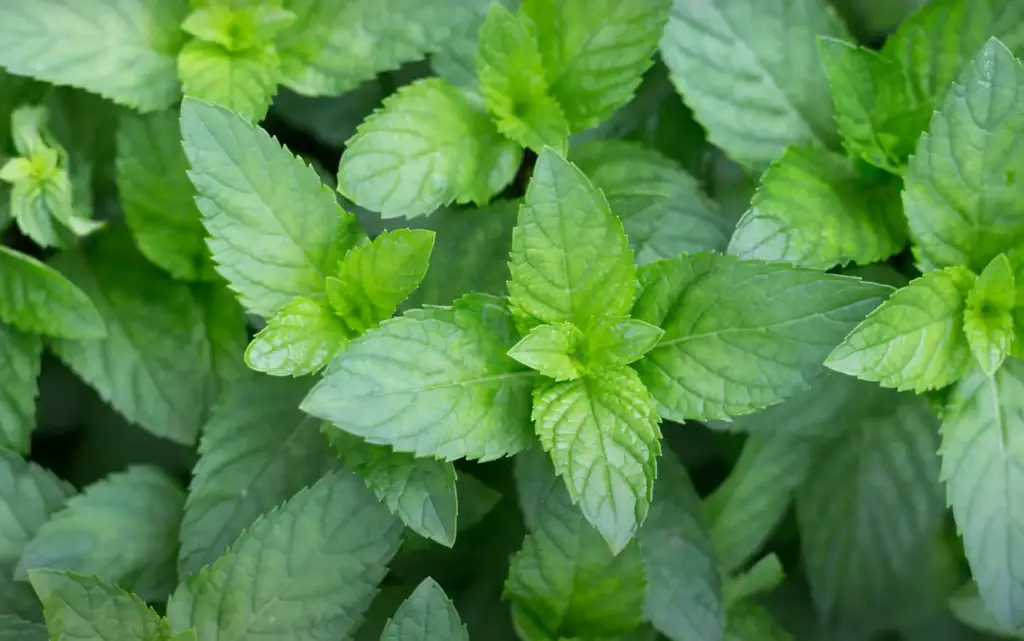
Planting Peppermint around the perimeter of your home will help keep them away from entering your living spaces.
Lavender
Another popular fragrant plant for keeping bugs at bay is lavender. It has a pleasant floral scent which makes it great for adding fragrance to gardens or indoor spaces. Additionally, it’s a natural pest repellent and has been known to ward spiders away.
Lemon Balm
Lemon balm is another fragrant herb that can be used to repel spiders from your home naturally. The lemon scent helps keep them away, as does the fact that it contains essential oils which have insect-repelling properties.
Rosemary
Rosemary is another great choice for keeping spiders at bay since it has an intense smell that they don’t like. Plant rosemary around your doors or windows for extra protection against spiders entering your home.
Catnip
This herb is not only good for cats but also works well as a spider repellent. It produces a strong odor that spiders find unappealing, so planting it around your house could help keep them away.
Garlic
Garlic is another great insect repellent and can be used to repel spiders as well. Plant garlic near windows or doors for extra protection against them entering your home.
Lemongrass
The lemony scent of lemongrass is also said to be an effective natural spider repellent. Planting this fragrant herb near windows and doors may help deter spiders from entering your home.
Mint
Mint is another fragrant herb that can be used to repel spiders from your home. Plant it around windows and doors for extra protection against them entering your living space.
Chrysanthemums
Chrysanthemums are colorful and fragrant flowers that can be used to repel spiders from your home. Its distinct scent is an effective deterrent for them, so planting it around the perimeter of your home may help keep spiders away.
Eucalyptus
The strong scent of eucalyptus is said to be an effective natural spider repellent. Planting eucalyptus near windows and doors will help keep spiders from entering your home.
Marigolds
Marigolds are known for their bright, cheerful colors, but they also have an intense scent that spiders find unappealing. Planting marigolds around your home may help keep them away from entering your living space.
These fragrant houseplants can be a great way to repel spiders naturally, without the need for harsh chemicals or sprays. With a bit of careful planting, you can have peace of mind that they’ll stay away from your living spaces. Hopefully, this list helps make it easier for you to choose which plants are best suited for keeping spiders out of your home [3]!
Tips on How to Care for Spider Repellent Plants
- Plant your spider-repellent plants in a sunny spot that will receive at least six hours of direct sunlight each day. This allows them to thrive and produce the oils that can repel spiders.
- Water your spider-repellent plants regularly but make sure not to overwater them as this can result in root rot or other diseases. Check the soil before you water, if it is dry several inches down then it’s time to water again.
- Feed your spider-repellent plants with an organic fertilizer every couple of weeks during the growing season – spring to fall is best for most species – and reduce how much you feed them during the winter months when growth slows down significantly.
- Prune your spider-repellent plants regularly to keep them looking their best and encourage healthy growth. This also helps remove any dead or dying leaves or branches that could be harboring spiders.
- Keep the area around your spider-repellent plants free of debris, leaves, sticks, and other objects where spiders may hide out during the day.
- Clean up fallen fruits and vegetables from your garden promptly as they can attract spiders as well as other insects which can then become prey for spiders.
- Spray a natural insecticide such as neem oil on the leaves and stems of your spider-repellent plants every couple of weeks to help keep pests away naturally without harming beneficial insects like bees and butterflies.
- Check your plants periodically for any signs of spider infestations such as webs or egg sacs, and if you find any take steps to get rid of them before they become a larger problem.
- Place some natural spider deterrents such as diatomaceous earth around the base of your plants or use sticky traps to capture and remove spiders from your garden without the use of harsh chemicals.
- Plant other companion plants that are also known to have insect-repelling properties to create a more robust defense against pests in general, and spiders specifically, in your garden. Examples of these plants include lavender, marigolds, and garlic.
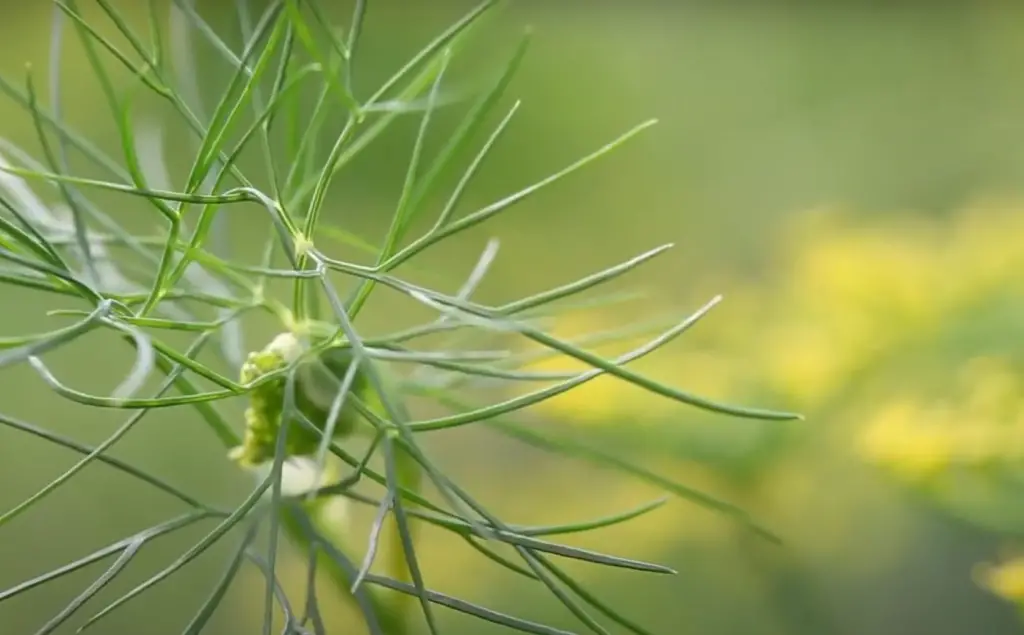
Follow these tips for the best results as you care for your spider-repellent plants. With regular maintenance, they can be a helpful addition to your garden that will help keep spiders away naturally without harsh chemical treatments. And remember that while most spiders are harmless and beneficial to have around in your garden, some species can be quite dangerous so it’s always best to err on the side of caution when dealing with them.
More Tips For Repelling Spiders
Seal the Gaps at Ground Level
Spiders can enter your property through tiny openings. To keep them out, you should seal any gaps in the foundation and exterior walls of your home. Use caulk to fill in cracks or crevices, use weather-stripping on doors and windows, and inspect the screens on vents and windows for damage. You should also check around plumbing pipes, electrical conduits, exhaust fans, window air conditioners, dryer vents, and AC units for small holes that may need to be filled with steel wool or caulking.
Store Firewood Away From Your Home
Firewood makes a great home for spiders as it provides food sources (like bugs) and shelter from predators or extreme temperatures. Keep firewood at least 20 feet away from the walls of your home, and store it off the ground in a rack or on pallets.
Tidy Up Your Yard
Spiders like to hide in clutter, so make sure to keep the outside of your property clean and tidy. Cut back bushes that are too close to your house, clear away fallen leaves and debris from gutters and drainage systems, get rid of leaf piles near the foundation of your home and trim overgrown shrubs. You should also remove webs regularly from corners and eaves.
If You See Webs & Sacs, Clean Them Out
If you see webs or sacs filled with eggs, use a vacuum cleaner to remove them from your home. Make sure the vacuum bag is removed and placed in an outdoor garbage bin after vacuuming.
Install Outdoor Lighting
Spiders are sensitive to light, so installing outdoor lighting can be effective at driving spiders away from your property. Consider adding motion-activated lights near entrances and areas prone to spider activity. Make sure the lights don’t shine directly onto walls as this could attract more insects (and subsequent spiders).
Use Natural Repellents
Using natural repellents such as mint oil, cedar oil, citrus peel extract, lavender essential oil, lemongrass essential oil, and/or garlic can help to repel spiders.
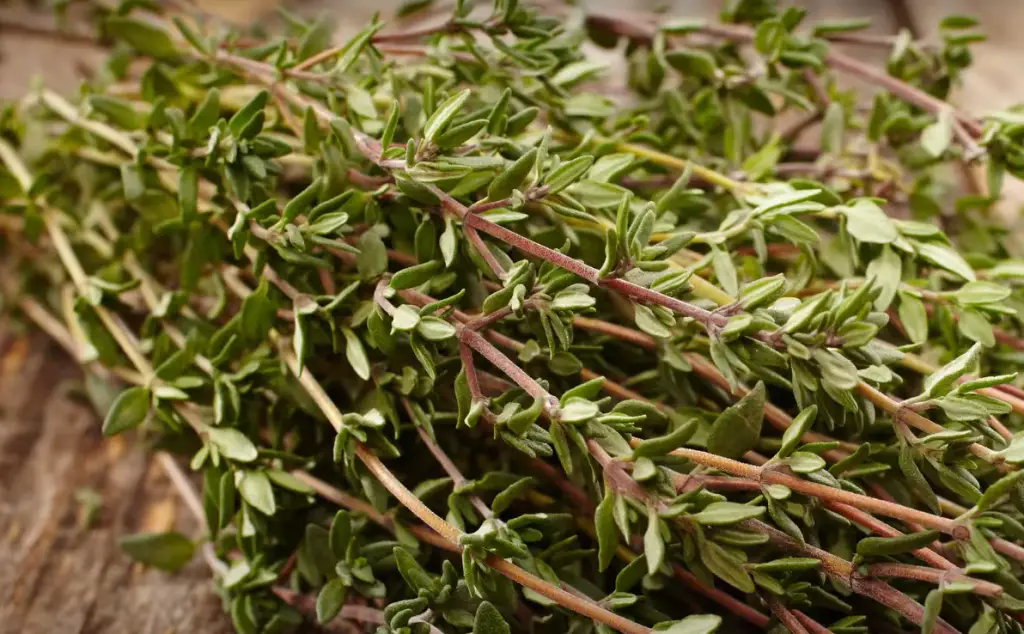
These repellents should be applied around the exterior of your home and in areas where spiders are likely to enter or hide, such as window frames, doorways, and baseboards. For best results, reapply every few weeks.
Clean with White Vinegar
If you find spiders in your home, try cleaning with white vinegar as it can help to repel them.
Be sure to allow the mixture to dry completely before reapplying.Spread Cedar Chips
Spreading cedar chips around the outside of your property can help to deter spiders. Cedar is one of the few natural repellents that has been proven to be effective at driving away spiders, so it’s a great option to try if you’re looking for a more natural solution. Spread cedar chips around areas where spiders are likely to enter or hide such as window frames, doorways, and baseboards. Reapply every few weeks for best results.
Use Diatomaceous Earth
If you’re looking for a natural, non-toxic way to repel spiders, diatomaceous earth can be an effective option. This powder is made from the fossilized remains of algae and is safe for use around children and pets. Spread it around door frames, window frames, baseboards, and other areas where spiders may enter or hide. Diatomaceous earth will also help to kill existing spiders in your home (though it doesn’t always repel them).
Keep Landscaping Clean & Tidy
Make sure the outside of your property is kept clean and tidy to discourage spiders from taking residence. Cut back overgrown shrubs, trim weeds, and remove debris such as fallen leaves and twigs from around the foundation of your home. Keeping the grass cut short can also help as it will reduce the number of bugs (and subsequent spiders) in your yard.
Call a Professional Exterminator
If you have a bigger spider problem on your hands, it may be best to call in a professional pest control company to take care of it.
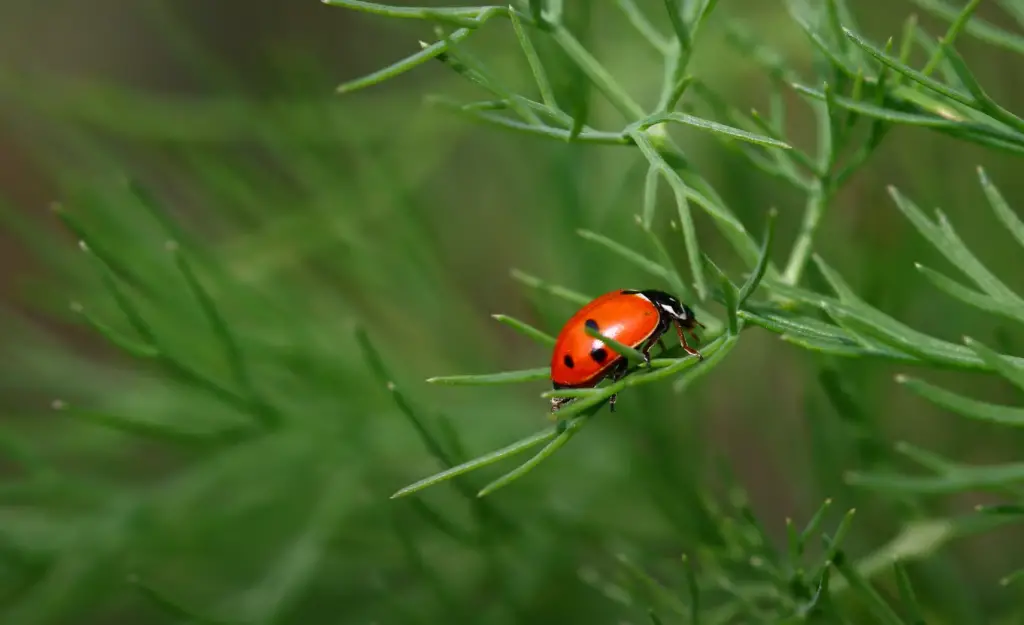
A professional exterminator will be able to identify any underlying causes for why you’re seeing so many spiders on your property, as well as recommend appropriate treatments for eliminating
What other insects can live in your garden?
Many insects such as butterflies, bees, moths, dragonflies, and damselflies can be found living in a garden. Butterflies are identified by their large wings and bright colors.
Moths are often seen fluttering around lights at night and come in a variety of colors. Dragonflies and damselflies have long slender bodies with two pairs of wings that can move independently from each other. All these insects play an important role in maintaining the balance of nature within your garden. Other beneficial insects include ladybugs, lacewings, ground beetles, rove beetles, hoverflies, assassin bugs, praying mantids, and spiders which help to control pest populations. Providing a variety of flowers and shrubs, as well as leaving some areas of the garden undisturbed can attract many beneficial insects to your garden.Creating environments within your garden that are suitable for these insects is essential for their survival and in turn, helps maintain a healthy and balanced ecosystem. A well-maintained habitat will also be attractive to birds which will further benefit the environment by eating small pests, such as caterpillars. In addition, backyard bird feeders can provide additional food sources for birds all year round.
Having a diverse insect population in your garden is important not only for maintaining nature’s balance but also provides an opportunity to observe different types of wildlife up close. Remember to always be respectful and mindful of your environment when enjoying nature in your backyard.
What Are Some Natural Ways to Control Pests?
There are a variety of natural ways to control pests in the garden without resorting to the use of chemical pesticides or herbicides. Introducing beneficial insects into the garden can help keep populations of destructive bugs in check. Ladybugs, lacewings, ground beetles, rove beetles, hoverflies, assassin bugs, praying mantids, and spiders all feed on various pests such as aphids, caterpillars, and scale insects. Creating habitats that encourage these beneficial predators is an effective way to naturally maintain a balance between pest species and their predators.
In addition, maintaining healthy soil with organic matter will help to reduce the number of pests in the garden. Healthy soil is more hospitable to beneficial microorganisms which can help break down organic matter, increase nutrient availability and suppress pest populations. Furthermore, you can use companion planting or interplanting to deter pests by planting certain species that repel insects that would otherwise feed on your vegetables or flowers.
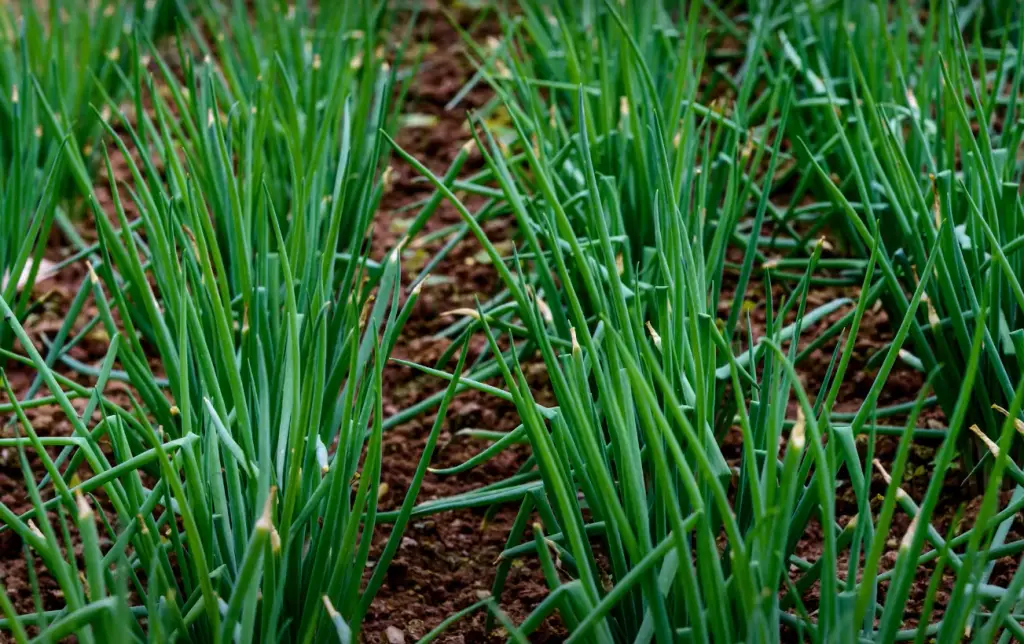
Finally, practicing proper garden sanitation helps keep pest populations under control by removing debris from the area where they are likely to hide such as piles of leaves or mulch. Keeping a clean and healthy garden environment discourages many insect species from setting up residence. Taking these steps into consideration will help keep your garden safe and healthy for both plants and animals alike.
FAQ
What is the best plant to keep spiders away?
The best way to keep spiders away is by using natural essential oils like tea tree, lavender, and eucalyptus oil. These oils are known for their strong smells which can deter spiders from entering your home. Additionally, you can purchase special spider repellents or make up your own solution with these essential oils in a spray bottle. If you have an infestation and would like more permanent measures, consider calling a pest control professional for assistance.
What do spiders hate the most?
Spiders are naturally repelled by strong scents and tastes, such as garlic, peppermint, and citrus. Additionally, spiders dislike tight spaces and are disturbed by vibrations. To keep them away from your home, you can place mothballs or fabric softener sheets around the perimeter of your house to create an unpleasant barrier for them. If you have an infestation in a particular area, try using sticky traps to catch them and help prevent future visits.
How can I get rid of spiders in my house?
The best way to get rid of spiders in your home is by creating an environment that is inhospitable to them. Start by regularly vacuuming cracks and crevices where they may be hiding to reduce their population. Additionally, keep your home free of clutter and debris to reduce the number of places they can hide. You can also try using natural essential oils or store-bought spider repellents around your home to make it less appealing to them. If you have an infestation, consider calling a pest control professional for assistance.
What do spiders eat?
Spiders typically feed on insects such as flies, mosquitoes, moths, caterpillars, grasshoppers, and beetles. They will also consume other arachnids like scorpions if available. Some spiders may be specialized predators in their habitats and feed solely on specific insects or prey items. Finally, some species may feed on nectar or pollen from plants for supplemental nutrition.
Are spiders dangerous?
Most spiders are not dangerous and pose little threat to humans; however, some species can be venomous and should be avoided. It is best to identify any spider that you come across so that you can assess the level of risk involved in coming into contact with it.
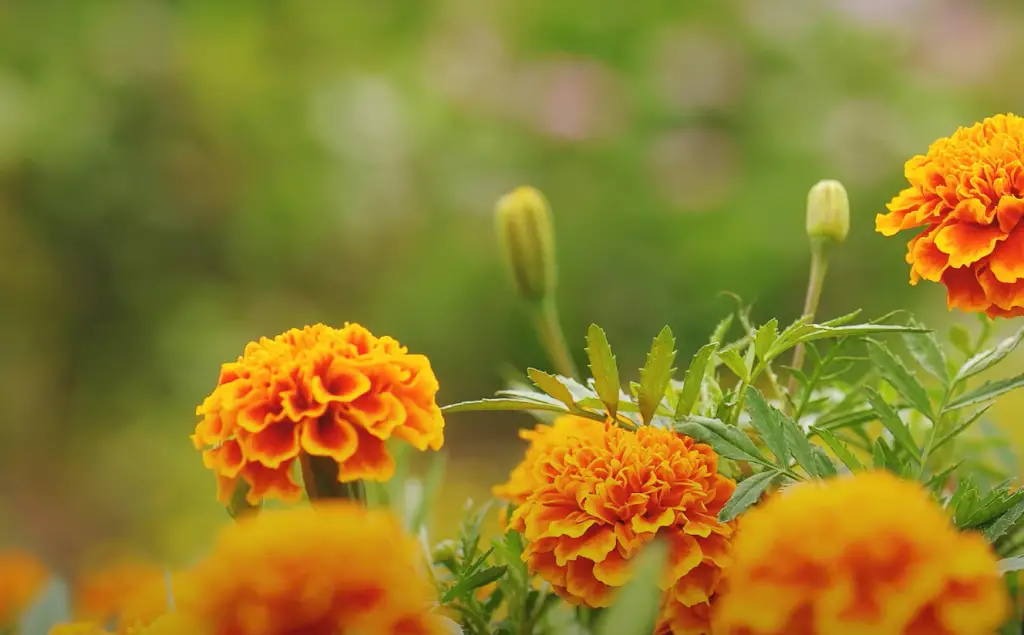
In general, most spiders will avoid human contact unless provoked and will only bite if they feel threatened. If you experience a reaction to a spider bite, seek medical attention immediately.
What smells do spiders hate the most?
Spiders are naturally repelled by strong scents and tastes, such as garlic, peppermint, and citrus. Additionally, spiders dislike tight spaces and are disturbed by vibrations. To keep them away from your home, you can place mothballs or fabric softener sheets around the perimeter of your house to create an unpleasant barrier for them. If you have an infestation in a particular area, try using sticky traps to catch them and help prevent future visits.
Do spiders bite?
Yes, some spiders will bite if they feel threatened or provoked. In general, most spider bites are not dangerous but may cause pain or swelling at the site of the bite. However, some species of spiders can be venomous and should be avoided. If you experience a reaction to a spider bite, seek medical attention immediately.
What keeps spiders away naturally?
Natural essential oils, such as peppermint, lavender, and eucalyptus, can be used to naturally repel spiders. These oils are known for their strong smells which can deter spiders from entering your home. Additionally, you can purchase special spider repellents or make up your own solution with these essential oils in a spray bottle. If you have an infestation and would like more permanent measures, consider calling a pest control professional for assistance.
How do I spider-proof my house?
To spider-proof your house, start by regularly vacuuming cracks and crevices where they may be hiding to reduce their population. Additionally, keep your home free of clutter and debris to reduce the number of places they can hide. You can also try using natural essential oils or store-bought spider repellents around your home to make it less appealing to them and create a barrier against future visitors. If you have an infestation, consider calling a pest control professional for assistance. Finally, seal up any openings in windows or doors that spiders might use as access points into your home. This will help prevent future infestations from occurring.
What places in your garden do spiders like most?
Spiders tend to prefer places in your garden that provide them with shelter and protection from predators as well as access to food sources. This often includes dark corners, thick vegetation, and areas near ponds or water features. Additionally, they may be found around compost piles, woodpiles, and rocks since these provide ideal spider habitats. To keep spiders away from your home, keep the area around it free of clutter and debris to reduce the number of places they can hide. You can also try using natural essential oils or store-bought spider repellents around your home to make it less appealing to them.
Why do spiders build webs?
Spiders build webs to trap insects and other small animals to feed on them. The web is made up of a series of intricate, sticky strands that entangle prey and allow the spider to detect their movements.
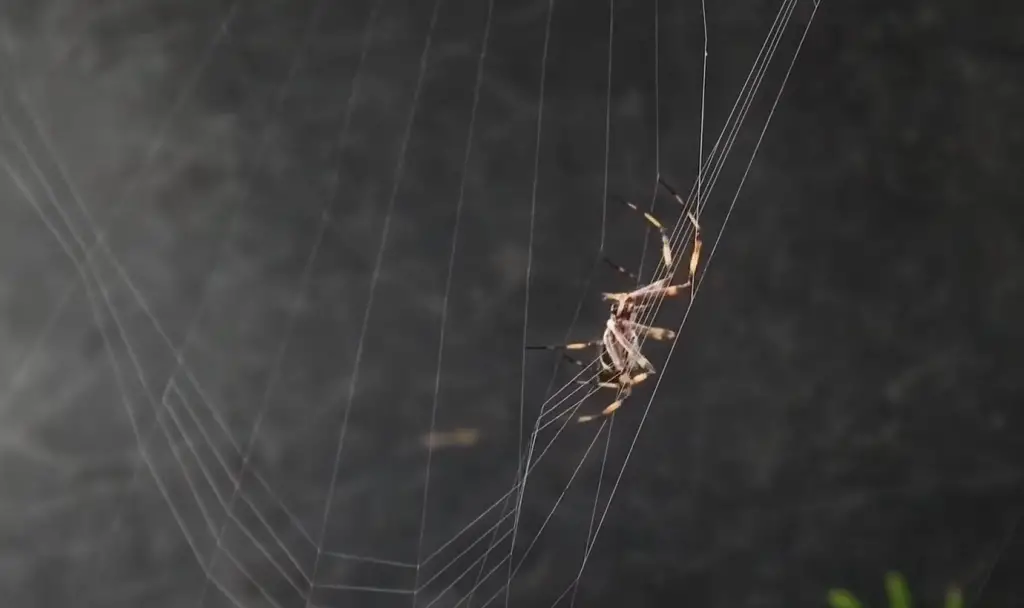
Additionally, spiders use their webs as a source of protection from predators by making it difficult for them to move through the area without getting stuck in the web. Webs also serve as homes for spiders, providing shelter and protection against harsh weather conditions. Finally, some species will even line their webs with silk pheromones which helps attract potential mates during the breeding season.
How to start a vegetable garden without spiders?
To start a vegetable garden without spiders, begin by keeping the area free of clutter and debris to reduce the number of places they can hide. Additionally, create an inhospitable environment around your vegetable garden by regularly removing any weeds or dead vegetation which may be providing shelter for them. You can also try using natural essential oils or store-bought spider repellents around your garden to make it less appealing to them. Finally, keep plants well-watered since dry climates are often attractive to spiders. Taking these steps should help prevent spiders from inhabiting your vegetable garden in the future.
What spiders are most common in the United States?
The most common spiders in the United States include cellar spiders, wolf spiders, jumping spiders, and black widow spiders. Cellar spiders are found in dark areas such as basements, while wolf spiders like to inhabit grassy areas outdoors. Jumping spiders can often be identified by their unique pattern of movement, while black widow spiders are known for their distinct red hourglass shape on their backs. It is important to note that even though these species may be the most common in the U.S., there are hundreds of different types of spider species living here!
Why is it important to keep spiders away from your home?
It is important to keep spiders away from your home because they can be a nuisance and may even pose health risks. Not only are some species capable of biting humans, but they can also spread diseases through their webs. Additionally, many spider species feed on other pests such as insects and other arthropods which can leave behind contaminants or cause property damage. Finally, an infestation of spiders in or around your home can be an unpleasant sight for visitors or potential buyers if you plan on selling the property in the future. For these reasons, it is best to take steps to prevent them from entering your home by removing any sources of shelter and sealing up openings in windows and doors.
Useful Video: Plants That Repel Spiders
Conclusion
Plants that deter spiders can be used in many ways to help reduce the number of spiders present in a home or garden. They can be planted around windows, doors, and other areas where spiders may congregate. In addition to this, it is also wise to keep webs away from these areas. By maintaining a clean living space and using plants that deter spiders, homeowners can effectively reduce the number of spiders in their homes. Additionally, these same methods can also be used by gardeners looking for natural pest control solutions to keep out unwanted arachnids. With just a few simple steps and the right plants, any spider problem can be kept under control.
References:
- https://savvygardening.com/garden-spider/
- https://a-z-animals.com/blog/are-garden-spiders-poisonous-or-dangerous/
- https://www.countryliving.com/uk/homes-interiors/a37589015/natural-spider-repellents/





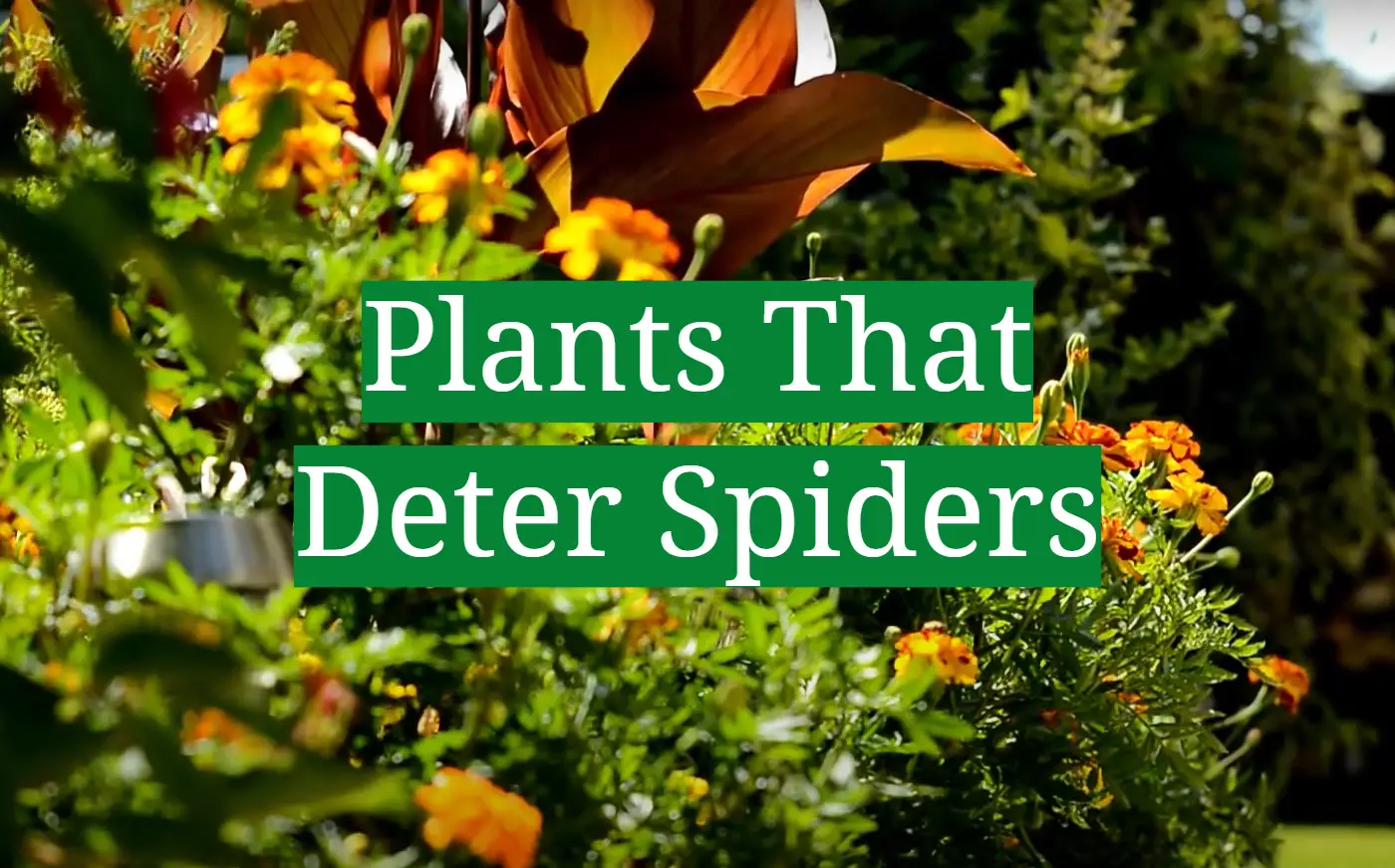




Leave a Reply
View Comments